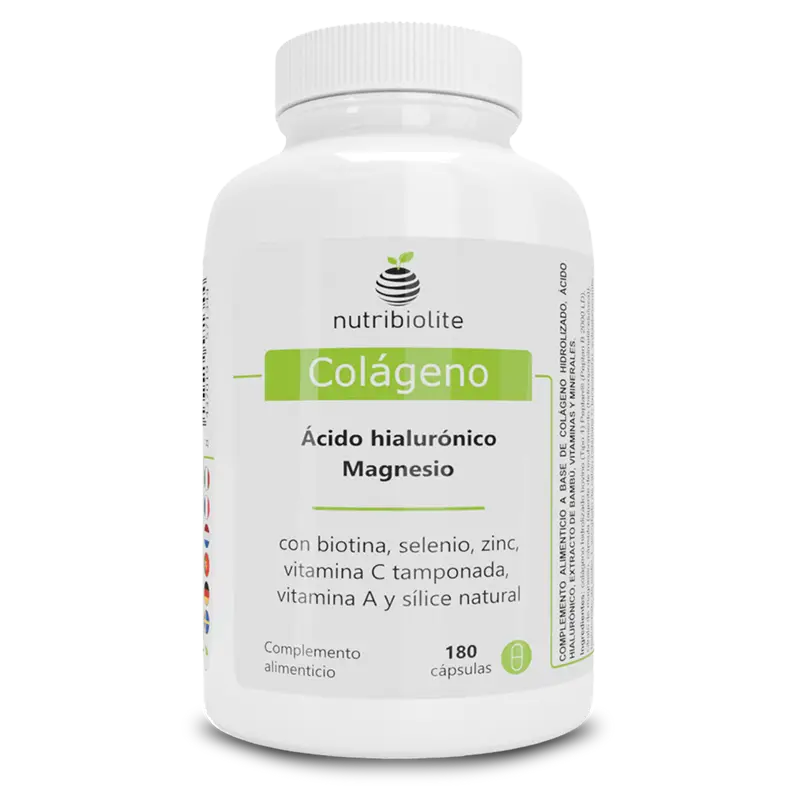A study in The British journal of nutrition 2025 looked at how collagen peptide supplementation influences appetite in physically active women after exercise. For one week, participants took 15 grams of collagen or a calorie-free drink daily and, after a cycling session, ate freely in the laboratory.
The women who took collagen consumed about 10 per cent less energy in the subsequent meal, without feeling less hungry or digestive discomfort. The body did show internal changes, with higher satiety hormones and lower hunger hormones. These results help to understand how certain proteins, such as collagen, can modulate physiological signals related to appetite.
What exactly did the study do and how big was the effect?
The trial was randomised, double-blind and cross-over. Fifteen young, healthy, active women completed two seven-day periods, one with bovine collagen in peptide form and one with a non-energy control drink.
For six days they took the supplement in the morning. On the seventh day they ate breakfast, cycled for 45 minutes at moderate intensity and then ingested the last dose. Sixty minutes later they were offered a meal of pasta to eat until they felt comfortably full, while the amount eaten was recorded.
With collagen, energy intake at that meal was about 10 per cent lower, about 41 fewer kilocalories, compared to the control drink. This is a slight but measurable change, signalling a real change in the body’s response to exercise, although it is not in itself a weight management tool.
The sample size was small and limited to active young women. In addition, the intervention lasted only one week. The authors therefore stress that this is a proof-of-concept study that needs to be confirmed in larger populations and over longer periods of time.
Hunger and satiety hormones, what the collagen changed on the inside
The team measured several hormones related to appetite. After the collagen period, levels of glucagon like peptide 1, known as GLP 1, and insulin, two signals that are often associated with increased satiety and better nutrient management, increased.
At the same time, lower levels of ghrelin, a hormone that stimulates hunger, and leptin, a hormone produced by adipose tissue that is also involved in regulating appetite and energy balance, were observed. Other hormones, such as peptide YY and cholecystokinin, showed no relevant changes between conditions.
What is striking is that, despite these hormonal variations, the women did not report feeling less hungry or fuller on the subjective scales. In other words, the body adjusted some of its biochemistry without a clear change in conscious perception. The reduction in intake was modest, but consistent with this more satiety-oriented hormonal profile.
In summary, collagen in peptide form acted as a protein source that modulated internal signals after exercise, similar to what has been seen with other proteins, albeit with its own amino acid profile, rich in glycine, proline and hydroxyproline.
How to apply these findings to your active day-to-day life
For a physically active adult, this study suggests that taking care of protein quality around exercise may slightly influence the appetite response afterwards. It is not a matter of eating much less, but of encouraging more efficient internal signalling.
Some habits consistent with these findings include prioritising good quality protein sources in meals close to training, maintaining adequate hydration and avoiding arriving at exercise on prolonged fasts that trigger hunger afterwards.
It also helps to plan post-exercise meals with satiating foods rich in protein and fibre, rather than just fast carbohydrates. This is in line with the body’s natural physiology, which seeks to replenish energy and repair tissues after exercise, without indulging in unnecessary calorie excesses.
Finally, it is important to remember that these effects are small and depend on the context. Weight and appetite management relies above all on the sum of daily habits, such as the overall dietary pattern, regular movement and adequate rest.
How Collagen Complex fits into this exercise physiology
The study worked with bovine collagen peptides, similar to the hydrolysed type 1 collagen used in many food supplements. In this context, collagen is understood as a specific source of amino acids involved in the structure of connective tissues and may influence the body’s response after exercise.
Nutribiolite Collagen Complex is formulated with Peptan Type 1 hydrolysed bovine collagen, which provides glycine, proline and hydroxyproline in bioavailable form. These amino acids are key to the synthesis of self collagen, an essential structural protein for skin, joints, bones and other connective tissues.
In addition, the formula incorporates buffered vitamin C, which contributes to normal collagen formation, and minerals such as magnesium, zinc and silicon from bamboo extract, which are involved in the synthesis of structural proteins and the maintenance of the extracellular matrix. Nutrients such as biotin, selenium and vitamin A complete the support for skin, hair, nails and cell function.
From this perspective, Collagen Complex does not act as a shortcut to appetite control. It is integrated into the same physiological logic as the study shows, providing hydrolysed collagen and cofactors that support tissue structure and accompany repair and maintenance processes, especially relevant in active people who subject their joints and muscles to regular stress.

Hydrolysed collagen supplement with nutrients that support the structure of skin, joints and connective tissues in active adults.
Bottom line, appetite, body structure and habits
The trial in active women shows that collagen peptides can produce a small adjustment in energy intake after exercise, accompanied by changes in hormones related to hunger and satiety. This is not a weight management tool in itself, but it adds another piece to the puzzle of how the body responds to different protein sources.
In everyday life, the key remains a combination of a balanced diet, sufficient protein spread throughout the day, regular exercise and good hydration. Supplements such as Collagen Complex can support the structure of skin, joints, bones and connective tissues, especially when integrated into a consistent and sustained routine.
This content is for informational purposes only and is not a substitute for the advice of a healthcare professional.
Frequently asked questions
Does collagen directly help control appetite?
The study showed a slight reduction in intake after exercise, around 10 percent, with no clear change in subjective feelings of hunger. Collagen is best understood as a protein source that modulates internal signals, not as a strong regulator of appetite.
For whom does it make most sense to use a collagen complex?
It may be of interest to adults looking to care for skin, joints, bones, hair and nails, especially if they lead an active lifestyle. Also for those who want to support the structure of connective tissues with hydrolysed collagen and nutrients involved in their synthesis.
How long does Collagen Complex need to be taken to notice changes?
The processes of collagen synthesis and renewal are slow. In general, it is recommended to take it constantly for several weeks or months to see changes in skin, hair, nails or joint comfort. The response may vary according to the individual and his or her habits.
Does Collagen Complex replace a diet rich in protein?
It does not replace a balanced diet. It works as a support that provides hydrolysed collagen and specific cofactors, but it must be integrated into a varied diet with quality protein sources, vegetables, fruits, healthy fats and adequate hydration.
Is it appropriate to take collagen if I exercise regularly?
In active individuals, collagen can support the structure of joints, tendons and other connective tissues, as well as contribute to the maintenance of bones and muscles when accompanied by adequate nutrients. It is always advisable to tailor supplementation to the type of exercise and to consult in case of specific questions.
















